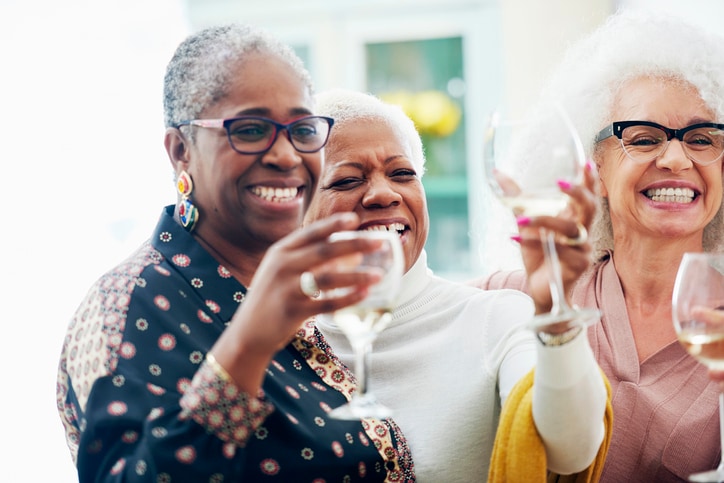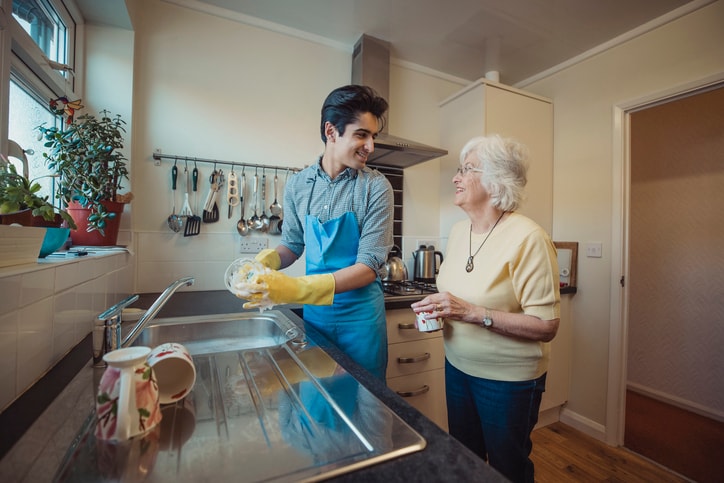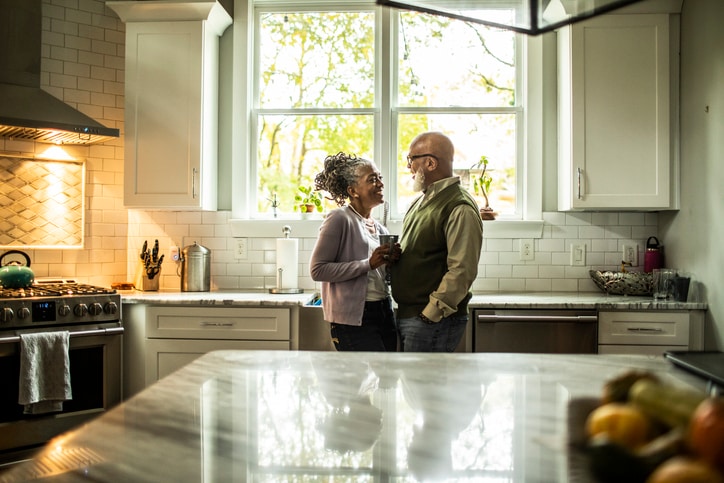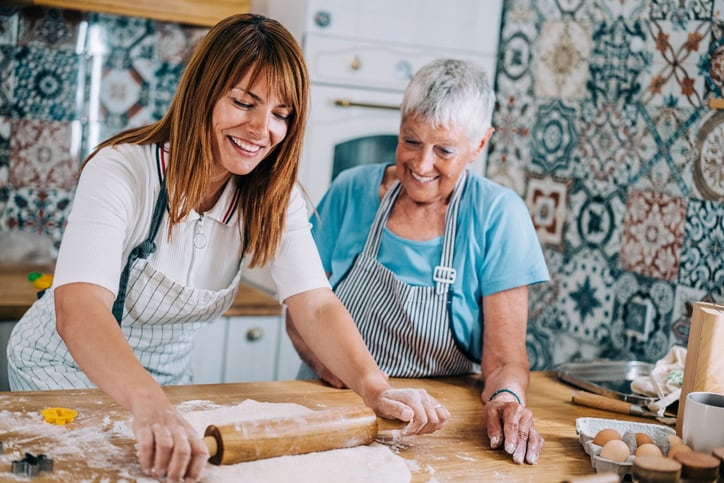It’s no secret that emotional connections and close relationships are critical to a person’s health, but how much social interaction is enough? A new study sheds light on the ways that even simple interactions can bolster aging adults’ moods and sense of well-being, and it proves that just a little bit of friendly socialization may go a long way towards staving off feelings of loneliness and other health issues.
The findings, published in the July issue of the American Journal of Geriatric Psychology, show that older adults who experience more positive social interactions each day report feeling a higher sense of purposefulness. This result is true for both working and retired adults, though researchers note that the findings are especially important post-retirement.
How do social interactions benefit older adults?
For the study, researchers from Washington University in St. Louis surveyed 100 Swiss adults with an average age of 71, asking them to rank their daily social interactions and share how much purpose they felt their lives had that day. They also assessed other measures, like each person’s relationship status and employment.
Ultimately, when they analyzed the results, researchers found that while each person’s sense of purpose varies daily, those variations are strongly impacted by positive social interactions. Respondents who reported better daily social interactions also reported feeling more purposeful overall. On days in which they had better social interactions than usual, they also reported feeling even more purposeful than usual.
“By enhancing sense of purpose, older adults will be more likely to experience the valuable cognitive and physical healthy aging benefits that come with it.”
—THE AMERICAN JOURNAL OF GERIATRIC PSYCHIATRY
Researchers say prior studies have shown that adults with a higher sense of purpose lead longer, healthier and happier lives. They also have lower rates of Alzheimer’s disease, heart disease and other cardiovascular problems.
“These findings are particularly relevant for more vulnerable populations known to experience purpose decline, such as retirees,” the researchers write in their report. “By enhancing sense of purpose, older adults will be more likely to experience the valuable cognitive and physical healthy aging benefits that come with it.”
How to boost an older adult’s mood and help them thrive
More than 40% of older adults regularly experience loneliness, according to a separate study from the University of California, San Francisco. Loneliness is also a major predictor of future health problems and even death. While small social interactions likely can’t combat the serious issues of loneliness and depression entirely, the latest research proves that even simple efforts can play a big role in how older adults feel about themselves and experience fulfillment in their lives.
To help older adults socialize more often, caregivers and family might consider helpful assistance, like:
- Offering to provide or find safe transportation.
- Helping them navigate social media.
- Supporting activities and daily routines.
- Helping older adults navigate their changing abilities.
- Calling in professionals or support groups when needed.
Most importantly, remember that relationships and regular interactions can have a profound impact on an aging loved one’s well-being.
“If you find yourself surrounded by people who bring you down, that’s going to have an impact,” says Gabrielle Pfund, an associate professor of psychological and brain sciences and the lead author of the Washington University study, in a press release. “On the flip side, if you’re surrounded by people who lift you up and who infuse your life with positivity, that’s going to have an impact, too.”



